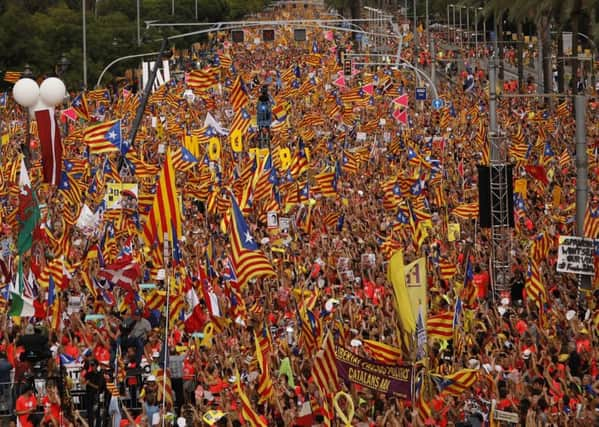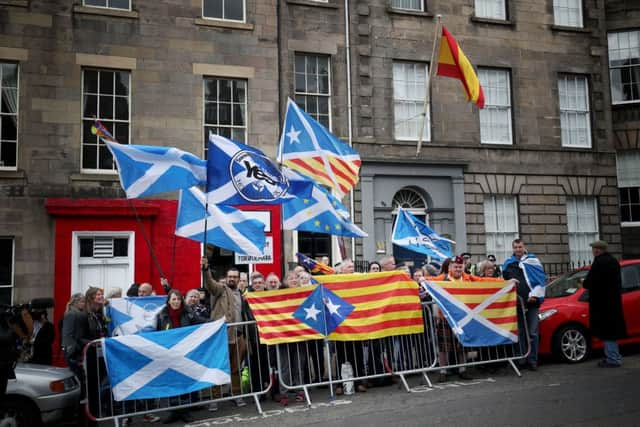What next for Catalonia and those that campaign for independence from Spain?


Tensions are running high this week in the province in the north-east of the country, as pro-independence supporters mark the anniversary of the vote on October 1, 2017 - a plebiscite that was not recognised by the central government in Madrid and was widely boycotted by Spanish unionists.
“We will advance toward the Catalan republic the only way we know how: democratically and peacefully,” said Quim Torra, the Catalan regional leader, in a speech this week.
Advertisement
Hide AdAdvertisement
Hide AdMeanwhile, Spain’s caretaker prime minister, Pedro Sánchez, has made clear that the central government could once again suspend Catalonia’s regional powers under Article 155 of Spain’s constitution.


It was under the previous administration of Mariano Rajoy that Article 155 was used in the wake of the 2017 independence drive, which saw a referendum deemed illegal by Madrid take place. That vote was followed by a subsequent unilateral declaration of independence passed by the Catalan regional government.
Many of those involved were subsequently arrested - 12 of whom are due to be sentenced in the coming weeks.
Support for independence in Catalonia remains stable around 45 per cent - similar to levels most polls on the matter in Scotland. Despite political divisions among Catalan parties, support for while a negotiated referendum stands at 70 per cent.
The Spanish Government is firmly opposed to any referendum on independence, citing the federal constitution which forbids any move that could weaken its sovereign territory.
But it is the fate of the 12 pro-independence leaders that is focusing most minds in Catalonia. The group were instrumental in the 2017 vote and face stiff prison sentences.
“This will result in massive protests and potential unrest in Catalonia,” wrote Daniel Cetrà, an expert on Catalan politics based at the Centre On Constitutional Change in Edinburgh in a blog this week.
“The management of the verdict and its consequences will no doubt be a burning issue in the election campaign and for the next Spanish Government.
Advertisement
Hide AdAdvertisement
Hide Ad“The Spanish Socialists are expected to gain seats after the election in November and a key issue will be whether they can form a majority government without the Catalan pro-independence forces.”
Naturally, the issue of Catalan independence is one that many Nationalists in Scotland take a keen interest in. But there remain very real differences between the two separatists camps.
“I sometimes tell my colleagues that David Cameron is an unlikely hero in Catalonia,” Cetrà told The Scotsman in 2017. “He’s seen as being reasonable for agreeing to negotiate with the Scottish Government.
“In 2014, the Scottish referendum was talked about on a daily basis by Catalan politicians. Now, people don’t talk about Scotland explicitly. It’s more in the back of people’s minds that there are other ways to solve these sort of political and legal conflicts.
“In Catalonia, the focus is on achieving a negotiated referendum. It is the main item on the political agenda. Exercising self-determination is what the Catalan movement has been fighting for in recent years. Not so much independence itself - but having the right to conduct a proper campaign. In that sense, Scotland remains a precedent regardless of the outcome.”
